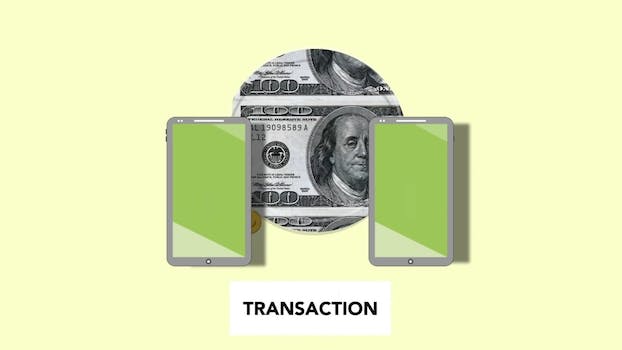

-
Table of Contents
The Power of Word of Mouth: Shaping Consumer Choices
Introduction
Word of mouth refers to the communication between individuals about a particular product, service, or brand. It plays a significant role in shaping consumer behavior and influencing purchasing decisions. This form of communication can occur both offline, through face-to-face conversations, and online, through social media platforms, review websites, and online forums. The influence of word of mouth on consumer behavior is undeniable, as it provides consumers with valuable information, builds trust, and creates social proof. In this introduction, we will explore the various ways in which word of mouth impacts consumer behavior and its implications for businesses.
The Impact of Word of Mouth on Consumer Purchasing Decisions
The Impact of Word of Mouth on Consumer Purchasing Decisions
In today's digital age, where information is readily available at our fingertips, consumers have become increasingly reliant on word of mouth when making purchasing decisions. Word of mouth refers to the informal communication between individuals about products, services, or brands. It can take various forms, such as personal recommendations, online reviews, or social media discussions. This article will explore the influence of word of mouth on consumer behavior and how it affects their purchasing decisions.
One of the primary reasons why word of mouth is so influential is its perceived credibility. Consumers tend to trust the opinions and experiences of their peers more than traditional advertising or marketing messages. When a friend or family member recommends a product, it carries more weight because it is based on their personal experience. This credibility factor is particularly important in industries where consumers face a high level of risk or uncertainty, such as healthcare or financial services.
Furthermore, word of mouth has the power to shape consumer perceptions and attitudes towards a brand. Positive word of mouth can create a favorable image of a product or service, leading to increased interest and consideration. On the other hand, negative word of mouth can have a detrimental impact on a brand's reputation and deter potential customers. In fact, studies have shown that consumers are more likely to share negative experiences than positive ones, making it crucial for businesses to actively manage their online reputation.
The influence of word of mouth extends beyond just creating awareness and shaping perceptions. It also plays a significant role in the actual purchase decision-making process. Research has shown that word of mouth can influence consumers at various stages of the decision-making journey. For instance, it can serve as a source of information during the initial research phase, helping consumers gather insights and evaluate different options. It can also act as a validation mechanism, reassuring consumers that they are making the right choice.
Moreover, word of mouth has the potential to drive brand loyalty and repeat purchases. When consumers have positive experiences with a product or service, they are more likely to share their satisfaction with others. This positive reinforcement not only strengthens their own loyalty but also encourages others to try the brand. In this way, word of mouth can create a virtuous cycle of customer advocacy and brand growth.
With the rise of social media and online review platforms, word of mouth has become more accessible and influential than ever before. Consumers can now easily share their opinions and experiences with a wide audience, amplifying the impact of their recommendations. Businesses have recognized the power of word of mouth and are increasingly leveraging it as a marketing tool. They actively encourage customers to leave reviews, engage with influencers, and create user-generated content to generate positive word of mouth.
In conclusion, word of mouth has a profound impact on consumer behavior and purchasing decisions. Its credibility, ability to shape perceptions, and influence at various stages of the decision-making process make it a powerful force in today's consumer landscape. Businesses must recognize the importance of word of mouth and actively manage their online reputation to harness its potential. By understanding and leveraging the influence of word of mouth, companies can build strong customer relationships, drive brand loyalty, and ultimately, achieve business success.
How Word of Mouth Influences Brand Perception and Loyalty

Word of mouth has long been recognized as a powerful force in shaping consumer behavior. When it comes to brand perception and loyalty, the influence of word of mouth cannot be underestimated. In this section, we will explore how word of mouth impacts consumers' perceptions of brands and their loyalty towards them.
First and foremost, word of mouth plays a crucial role in shaping brand perception. When consumers hear positive things about a brand from their friends, family, or colleagues, it creates a positive image in their minds. They are more likely to view the brand as trustworthy, reliable, and of high quality. On the other hand, negative word of mouth can have a detrimental effect on brand perception. If consumers hear negative reviews or experiences from others, it can create doubts and skepticism about the brand.
One reason why word of mouth is so influential in shaping brand perception is the element of trust. Consumers tend to trust the opinions and recommendations of their peers more than traditional advertising or marketing messages. This is because word of mouth is seen as unbiased and genuine. When someone recommends a brand based on their personal experience, it carries more weight than a paid advertisement. As a result, positive word of mouth can significantly enhance brand perception and credibility.
In addition to brand perception, word of mouth also plays a crucial role in building brand loyalty. When consumers have a positive experience with a brand and share it with others, it creates a sense of loyalty and attachment. This is because word of mouth acts as a validation of their choice and reinforces their positive feelings towards the brand. On the other hand, negative word of mouth can lead to a decline in loyalty. If consumers hear negative reviews or experiences from others, they may start questioning their loyalty towards the brand and consider switching to alternatives.
Furthermore, word of mouth can also influence consumers' purchasing decisions. When consumers hear positive recommendations from their peers, it can act as a powerful motivator to try out a brand or make a purchase. This is because consumers trust the opinions of their peers and believe that they have their best interests in mind. On the other hand, negative word of mouth can deter consumers from making a purchase. If consumers hear negative reviews or experiences from others, they may decide to avoid the brand altogether.
It is important for brands to recognize the impact of word of mouth on consumer behavior and take steps to leverage it in their favor. One way to do this is by providing exceptional customer experiences that encourage positive word of mouth. Brands can also actively engage with their customers and encourage them to share their experiences with others. This can be done through social media campaigns, referral programs, or by simply providing a platform for customers to share their feedback.
In conclusion, word of mouth has a significant influence on consumer behavior, particularly when it comes to brand perception and loyalty. Positive word of mouth can enhance brand perception, build loyalty, and drive purchasing decisions. On the other hand, negative word of mouth can have a detrimental effect on brand perception and loyalty. Brands should recognize the power of word of mouth and take proactive steps to encourage positive recommendations and address any negative feedback. By doing so, they can harness the power of word of mouth to their advantage and create a loyal customer base.
The Role of Online Word of Mouth in Shaping Consumer Behavior
The Role of Online Word of Mouth in Shaping Consumer Behavior
In today's digital age, online word of mouth has become a powerful force in shaping consumer behavior. With the rise of social media platforms and online review sites, consumers now have access to a wealth of information and opinions about products and services. This has had a profound impact on the way consumers make purchasing decisions.
One of the key ways in which online word of mouth influences consumer behavior is through the power of social proof. When consumers see positive reviews and recommendations from their peers, they are more likely to trust and be influenced by those opinions. This is because people tend to rely on the experiences and opinions of others when making decisions, especially when it comes to unfamiliar products or services.
Online word of mouth also plays a crucial role in building brand reputation and credibility. Positive reviews and recommendations can help to establish a brand as trustworthy and reliable, while negative reviews can have the opposite effect. In fact, studies have shown that consumers are more likely to trust online reviews than traditional advertising. This is because online reviews are seen as more authentic and unbiased, coming from real people with real experiences.
Furthermore, online word of mouth has the ability to reach a wide audience and spread quickly. With the click of a button, consumers can share their opinions and experiences with thousands, if not millions, of people. This means that a single positive or negative review can have a significant impact on a brand's reputation and sales. It also means that brands need to be proactive in managing their online reputation and addressing any negative feedback in a timely and effective manner.
Another important aspect of online word of mouth is the influence of influencers and bloggers. These individuals have built a loyal following and have the ability to sway consumer opinions and purchasing decisions. Brands often collaborate with influencers to promote their products or services, knowing that their recommendations will carry weight with their followers. This form of online word of mouth can be particularly effective, as it combines the power of social proof with the influence of a trusted source.
However, it is important to note that not all online word of mouth is positive or trustworthy. With the rise of fake reviews and paid endorsements, consumers need to be cautious and discerning when it comes to online recommendations. It is important to look for signs of authenticity, such as detailed and specific reviews, as well as multiple sources of information.
In conclusion, online word of mouth has become a significant factor in shaping consumer behavior. Through the power of social proof, brand reputation, and the influence of influencers, online word of mouth has the ability to sway consumer opinions and purchasing decisions. However, consumers need to be mindful of the authenticity and trustworthiness of online recommendations. By being discerning and looking for multiple sources of information, consumers can make more informed decisions in the digital age.
Q&A
1. How does word of mouth influence consumer behavior?
Word of mouth influences consumer behavior by providing personal recommendations and opinions from trusted sources, which can significantly impact purchasing decisions.
2. What are the benefits of word of mouth for businesses?
Word of mouth can generate positive brand awareness, enhance credibility, and increase customer loyalty. It can also lead to new customer acquisition and help businesses build a strong reputation.
3. Are there any drawbacks to word of mouth?
While word of mouth can be highly influential, negative word of mouth can also have a detrimental impact on consumer behavior. Additionally, businesses have limited control over what is being said, making it important to actively manage and monitor customer perceptions.
Conclusion
In conclusion, word of mouth has a significant influence on consumer behavior. It plays a crucial role in shaping consumers' perceptions, attitudes, and purchasing decisions. Positive word of mouth can enhance brand reputation, increase trust, and drive sales, while negative word of mouth can have the opposite effect. Therefore, businesses should prioritize creating positive experiences for their customers to encourage favorable word of mouth and leverage it as a powerful marketing tool.












